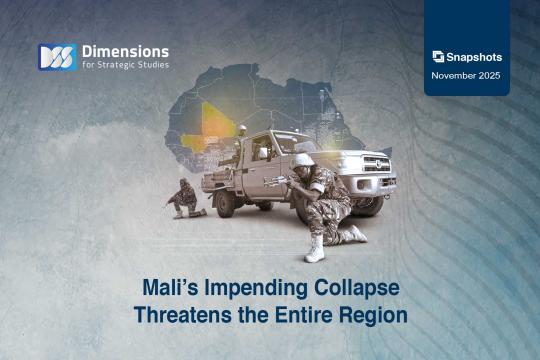
Killing of Tripoli Strongman Shakes Up Libya’s Security Landscape
2025-05-138258 view
On May 12, 2025, forces affiliated with Libya’s Government of National Unity killed Abdul Ghani al-Kikli, a powerful player in the wartorn country’s capital Tripoli. Widely known as Gheniwa, Al-Kikli was head of the Stabilization Support Authority (SSA) affiliated with the Libyan Presidential Council.
Within hours of his assassination by Libya’s 444th Brigade, forces affiliated with the unity government of Abdul Hamid Dbeibah had seized the headquarters of the now-leaderless SSA, which rapidly collapsed.
Gheniwa’s killing abruptly halted his attempts to challenge the GNU’s control in western Libya, as well as his efforts to install loyalists at the Central Bank, the Libyan investment authority, and the Ministry of Foreign Affairs. It came after he had threatened to side with opponents of the Prime Minister, most notably Khaled al-Mishri, a former candidate for the presidency of High Council of State.
The forces of Dbeibah’s government have made significant progress in dismantling the SSA, which had expanded in an unregulated manner over recent years due to its control over certain state resources.
This campaign, capped by the killing of the force’s commander, spells a transformation in the security landscape in western Libya, to the benefit of the 444th and 111th Brigades—run by the Ministry of Defense—as well as security forces affiliated with the Ministry of the Interior. However, the so-called RADA Special Deterrence Forces will retain much of its independence, posing a challenge to attempts to create cohesion among forces in western Libya.
The changes underway in the country’s west are likely to win approval from key world powers, most notably the United States, which is constantly pushing for the unification of all the country’s armed forces within a single military structure to prevent Russia from gaining influence in western Libya through factions opposed to the government, which in turn are gaining leverage through relationships with Russia or the forces of eastern military chief Khalifa Haftar.
Moving forward, Washington and regional powers active in the Libyan conflict, such as Türkiye, may step up their pressure to unify the country’s divided military establishment, in the hope of scrapping sub-state organizations and reduce interference in the Libyan conflict by a wide range of international actors, which remains a source of tension that means the threat of a return to full-scale military conflict is never far away.





